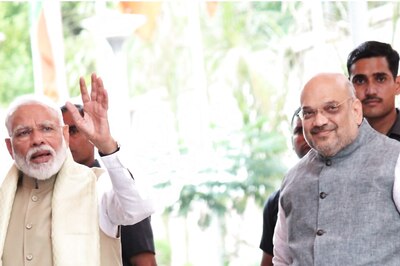
views
As the Centre on Thursday said areas covered under the Armed Forces Special Powers Act (AFSPA) in northeastern states of Nagaland, Assam and Manipur will be reduced, Dr Chinglen Maisnam, 45, who grew up in the shadow of the controversial Act in Manipur, was relieved.
A part of the students’ movement seeking repeal of AFSPA in the 1990s, Maisnam distinctly remembers the bandhs, bombings and raids by security personnel.
“I congratulate the government for taking this step. From March 6, 2000 to March 28, 2022, 3,635 people have lost their lives because of this Act. Some say more than 5,000 people have died,” Maisnam, an economics professor at the Manipur University, told News18.
Promulgated by the British, the law was enacted in response to the Quit India movement in 1942. Prime Minister Jawaharlal Nehru decided to retain the Act after Independence. In 1958, the AFSPA was notified as an Act.
Under AFSPA, armed forces are defined as any military troops and “the air forces operating as land forces, and includes other armed forces of the Union so operating”.
Officers stipulated under AFSPA can arrest without warrant any person in connection with the commission of a cognisable offence or even on the “reasonable suspicion… that he has committed or is about to commit a cognisable offence”. The Act allows such officers to “use such force as may be necessary to effect the arrest”.
AFSPA also permits officers — based on the “opinion that it is necessary so to do” — to “destroy” any structure or shelter from which armed attacks are made or are likely to be made or are attempted to be made. Armed forces are also allowed to “enter and search without warrant any premises”. Section 6 of the Act grants immunity from prosecution for actions carried out in “disturbed areas” by security forces.
Maisnam, like many others, believes that political dialogue, and not military, is the solution to the problems of this area.
“I have seen thousands of youths grow up amid such unrest. Some succumbed to insurgency, while some to security forces. Our demand is scrapping of the Act, which has weakened democracy.”
From standing by Iron Lady Irom Sharmila to condemning the Manorama Devi alleged rape case, Maisnam represents the generation that has seen the unrest brew.
According to him, the disbelief between the security forces and common people has grown over the years, but the government’s step towards peace has given him hope. “We hope Manipur loses the tag of insurgency and disturbance and is known for its development,” he signs off.
Read all the Latest News India and Breaking News here



















Comments
0 comment